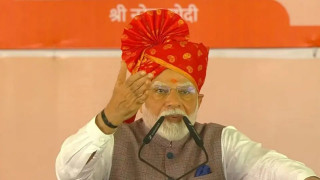
Himanta Biswa Sarma response to Pakistan (Social media )
The row broke out after Pakistani spokesperson Rana Ihsaan Afzal allegedly stated that, as India had temporarily suspended the Indus Waters Treaty with Pakistan, China also could act similarly on India's northern front by curtailing the Brahmaputra flow. The statement soon came under the spotlight, raising controversy over water security and South Asian geopolitical bargaining power.
Himanta Biswa Sarma hit back on social media platform X calling "another false alarm" from Pakistan. "Let's bust this fallacy not in fear, but in facts and national acuity," Sarma tweeted. "Brahmaputra: A River That Grows in India Not Shrinks."
What If China Stops Brahmaputra Water to India?
— Himanta Biswa Sarma (@himantabiswa) June 2, 2025
A Response to Pakistan’s New Scare Narrative
After India decisively moved away from the outdated Indus Waters Treaty, Pakistan is now spinning another manufactured threat:
“What if China stops the Brahmaputra’s water to India?”…
Sarma clarified that China contributes only 30–35% of the Brahmaputra's total flow, predominantly as glacial melt and precipitation in Tibet. The rest of the 65–70%, he insisted, is produced within India courtesy of deluge monsoon rains in Arunachal Pradesh, Assam, Nagaland, and Meghalaya, as well as water frommajor tributaries such as the Subansiri, Lohit, Kameng, Manas, Dhansiri, and Jia-Bharali.
He further said more flows from Meghalaya's Khasi, Garo, and Jaintia Hills via rivers like Krishnai, Digaru, and Kulsi make the Brahmaputra a robust, rain-supported system. "Even if China would cut water flow which is improbable since Beijing has never threatened to do that it would perhaps assist us in controlling the disastrous yearly floods in Assam," he emphasized.
Sarma's comments are preceded by increasing water tensions in the wake of India's announcement last month to suspend the Indus Waters Treaty as a countermeasure to the Pahalgam terror attack. This has provoked strong reactions from Islamabad with Pakistan Army Chief Asim Munir remarking, "Water is Pakistan's red line."
Pakistan has blamed India for seeking to exercise "hegemony" by controlling water, but Sarma's statement repositions the Brahmaputra debate altogether converting a perceived threat into an argument for national toughness. As India asserts more control over its transboundary water politics and refuses to yield to strategic pressure, the Brahmaputra debate now represents a new front in the changing story of South Asia's geopolitics.













Copyright © 2025 Top Indian News

